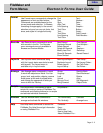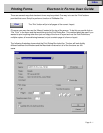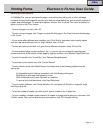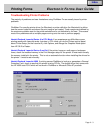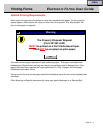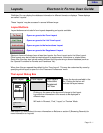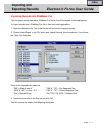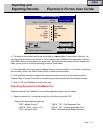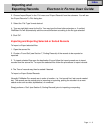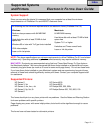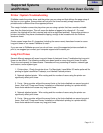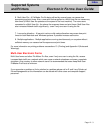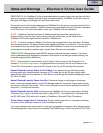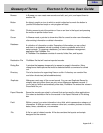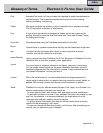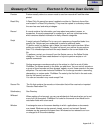
Electronic Forms User GuideGlossary of Terms
Field
Button
Click
Cursor
Destination File
Export Records
Directory
Duplicate
Dialog Box
Browse
Database
A collection of information or data. Examples of information you can collect
and store in a database include a catalog of parts or products and a list of
sales contacts. To organize a database, you use a database management
application like FileMaker Pro.
A FileMaker Pro database consists of records, fields, files, and layouts.
File A file is a set of related records. A file also contains the layouts and scripts
designed for the records.
Within a record, you enter information into a field, which represents a category of
information. A field can contain names or other text, numbers, pictures or sounds,
dates, times, calculations, or summaries.
Saves the records you select in a format that can be used by other applications.
You select a destination file for the records in the Export Records to File dialog
box.
Makes an exact copy of the current record. You can use Duplicate Record to
simplify data entry when there are only minor differences between records. If
you've set up fields to automatically enter data, FileMaker Pro enters the values in
those fields for you.
In Browse you can create new records and edit, sort, print, and export them to
another file.
An object, graphic or icon to which a script is attached so wneh the button is
‘pushed’ the attached script or mini-program will start.
Clicking means to point the pointer or I-bar on an item in the layout and pressing
the mouse or pointer button once.
In Browse mode, a pointer to show what field is current to enter new information,
alter existing information or delete information.
FileMaker file that will receive imported records.
A window that appears temporarily to request or supply information. Many
dialog boxes have options that must be selected before a command is carried
out.
Part of a structure for organizing files on a disk. A directory can contain files
and other directories (called subdirectories).
Appendix B - 1
Index



